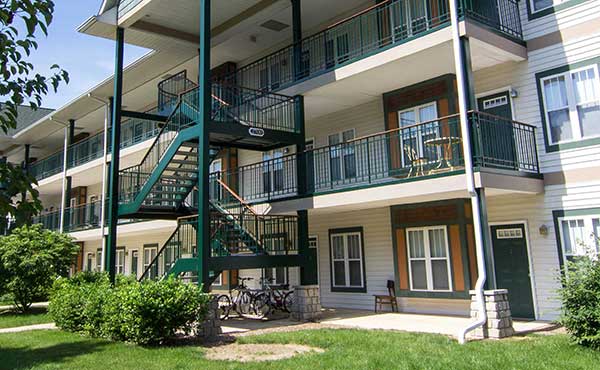5 Ways A Landlord Can Decrease Evictions
March 14th, 2017 | By: John M. Mione, Esq.
Evictions cost everyone: landlords, property managers, even tenants. Legal costs, time spent at court, and lost rent while finding a new tenant all harm a property owner’s Net Operating Income (NOI). It is therefore vital for landlords to understand how to decrease evictions not only to optimize NOI, but also to reap the benefits of strengthening relationships with existing tenants.
Here are 5 helpful tips to get residents to pay more consistently and thus decrease evictions:
1. Effective Tenant Screening
Decreasing evictions starts right from the very first step in your relationship with your tenants: your application screening process. It’s important to take your time and do your due diligence when you screen potential tenants. Thorough screening increases the likelihood that you will have a good paying resident over a longer period of time. Just remember to uniformly follow your policies and procedures to avoid potential fair housing scrutiny.
Effective screening includes:
- Credit Check. This may seem obvious but we at Paletz Law have seen enough cases where not doing a comprehensive credit check has led to premature approval leading to eventual difficulties in collecting rent.
- Criminal Background Check. This is an essential tool to any tenant screening process. However, in April of 2016, the Department of Housing and Urban Development (HUD) came out with strict guidelines for criminal screening. Therefore, although it should remain a vital part of your process, we always recommend developing an internal policy that outlines specific, consistent criteria to follow.
- Speaking to the Applicant’s Prior Landlord(s). Go beyond the written data and the non-descriptive prior landlord reference and have an actual conversation with the tenant’s prior landlord. We also recommend setting up a common set of questions to ask, regarding payment history, any problems they may have had while residing at the property and any other general notes relating to their conduct.
2. Consistent Communication
Better communication leads to better relationships, which in turn leads to better paying tenants and less evictions. Create a system and train your personnel to increase communication with your residents. Whether it’s through mail, e-mail, social media, telephone conversations or face to face meetings, follow up with your residents, listen to them and learn from their feedback.
This will turn you into a proactive landlord who can solve potential difficulties before they materialize rather than a reactive one who has to constantly “put out fires”. Also, if you have a good relationship with your residents, they are much more likely to refer future applicants to you. Again, remember though, you must be consistent in communicating with all your residents to avoid fair housing liability. In other words, if you text with one, you better allow texting with all.
3. Accepting Rent from Assistance Organizations
Allowing for and even incorporating more rent from agencies (governmental or private charities) can also help decrease evictions. After all, not only are individuals who get assistance generally protected under fair housing laws, but most courts will be hesitant to allow an expedited eviction under these circumstances. Knowing this, include these agencies into your rental collection process and keep open communication with them and your tenants to ensure receipt of payment.
4. Creating Payment Plans
When done reasonably and applied correctly, working out payment plans with residents can help to avoid a spike in vacancies, especially when taking over a financially distressed property. Make sure that the terms are strict and that you adhere to them – namely proceeding with suit first, then doing a payment plan within the language of a court judgment. The judgment should then allow for eviction upon default of any term.
When creating a payment plan, avoid offering or accepting discounts on the rent owed as the plan itself already provides relief to the tenant. Also, remember the power of word of mouth. Once word spreads that you are willing to lower rent in order to receive payments, you may find it very difficult to stop other residents from seeking similar discounts.
5. Strict Adherence to the Legal Process
Yes, the whole point of this article is to decrease evictions. So while it may seem paradoxical, strict and timely adherence to the legal process actually helps you achieve this goal in the long run. If non-payment notices are issued at the same time every month and suit follows as soon as the law permits, residents are eventually conditioned to know they will be subject to additional costs if rent remains unpaid. This is in turn gives them greater incentive to pay on time.
The Bottom Line:
Following the 5 simple steps above can help reduce your evictions and increase your NOI. It starts with the application and screening process and continues with fostering open communication with your tenants. Just be mindful of acting consistently and consult with Paletz Law to best avoid the pitfalls of fair housing.
Speak with a Paletz Landlord
Advocate Today
 - advice for small to mid-size businesses to help them better their day-to-day operations
- advice for small to mid-size businesses to help them better their day-to-day operations 